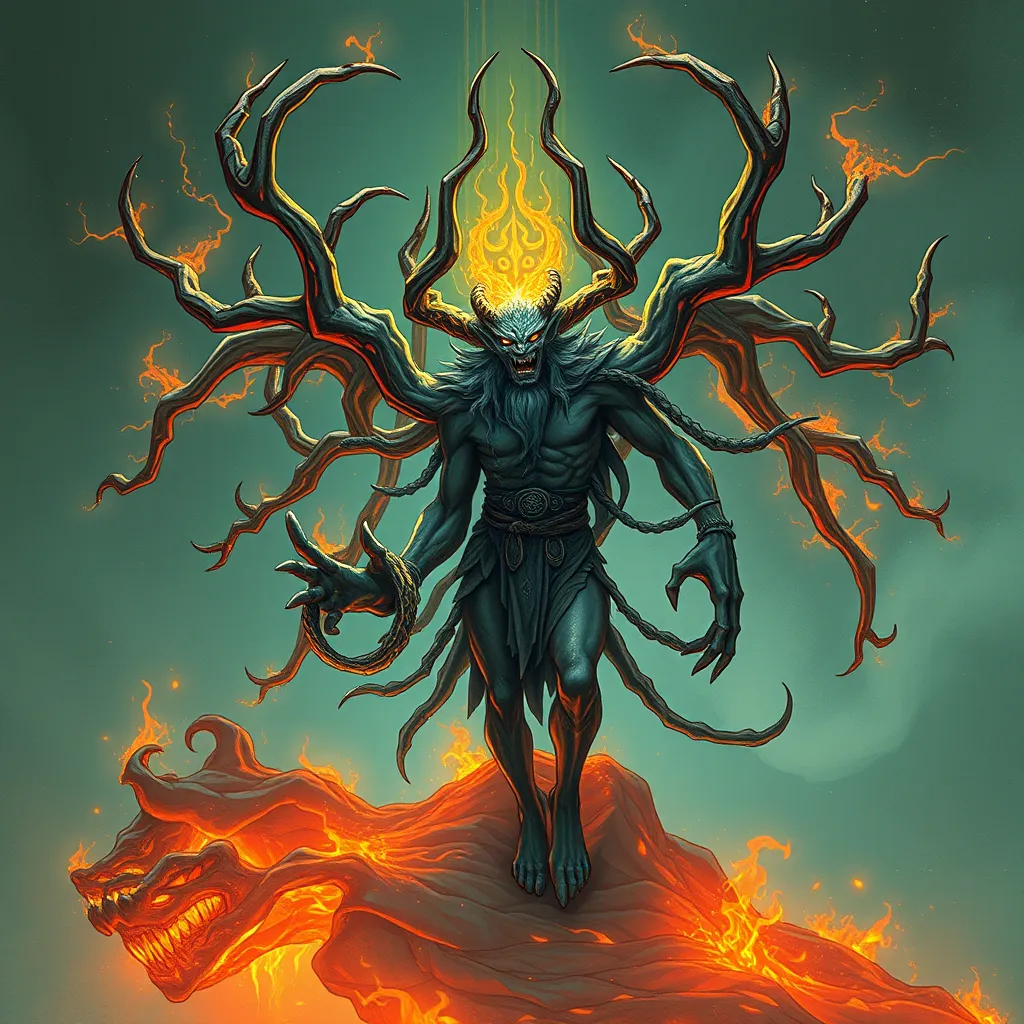The Hydra’s Shadow: Examining the Monster’s Impact on Human Psyche and Behavior
I. Introduction
The Hydra, a formidable creature from Greek mythology, is often depicted as a multi-headed serpent that poses significant challenges to heroes. Its terrifying nature not only captivates audiences but also serves as a profound symbol of the complexities of human emotions and behaviors. This article aims to explore the psychological implications of the Hydra, examining how this mythical creature resonates with our innermost fears and the multifaceted struggles we face in life.
II. The Hydra in Mythology
The origins of the Hydra can be traced back to ancient Greek myths, particularly the tale of Hercules. According to legend, the Hydra dwelled in the swamps of Lerna and was known for its regenerative abilities; when one head was cut off, two would grow back in its place. This attribute made the Hydra a symbol of resilience and re-emergence, embodying the challenges that are often hard to overcome.
In the myth of Hercules, the Hydra represents an insurmountable obstacle. Hercules was tasked with slaying the creature as part of his Twelve Labors. The encounter was not only physical but also symbolic, illustrating the struggle against overwhelming odds. The Hydra’s many heads symbolize the complexity of problems that can arise, making the task of overcoming them even more daunting.
III. Psychological Interpretation of the Hydra
From a psychological perspective, the Hydra can be seen as a representation of fear and anxiety. Just as the creature grows more formidable with each defeat, our fears can multiply when we avoid confronting them. The concept of “many-headed” problems is prevalent in modern psychology, highlighting how issues can manifest in various forms, complicating our ability to find solutions.
- The Hydra as a metaphor for mental health challenges exemplifies how various aspects of our lives can intertwine to create a larger, more intimidating problem.
- For example, stress, anxiety, and depression can often be interconnected, resembling the Hydra’s many heads.
IV. The Hydra’s Influence on Behavior
The fear of the Hydra can significantly influence human behavior. Individuals may develop avoidance strategies, steering clear of situations that remind them of their “Hydras.” This can lead to a cycle of fear and avoidance, ultimately exacerbating the problems at hand.
Coping mechanisms often emerge as individuals confront “Hydra-like” issues. These may include:
- Seeking therapy or counseling
- Engaging in mindfulness practices
- Building a support network
Mythical narratives, like that of the Hydra, can also influence real-life decision-making. The stories we tell ourselves about our struggles can shape our perceptions and responses to challenges, often encouraging resilience or, conversely, despair.
V. Comparative Analysis: The Hydra and Other Mythical Creatures
When examining the Hydra, it is useful to compare it to other mythical monsters, such as Cerberus or Medusa. While each creature carries its own symbolism and psychological implications, they share common themes of duality and conflict.
- Cerberus, the three-headed dog, represents the fear of the unknown and the afterlife, emphasizing the struggle with mortality.
- Medusa, with her petrifying gaze, symbolizes the anxiety surrounding beauty and self-image.
Despite these similarities, the Hydra’s unique regenerative ability sets it apart, emphasizing the idea that some problems, if not confronted, can multiply and become more entrenched.
VI. The Hydra in Contemporary Culture
The Hydra continues to be a powerful symbol in contemporary culture, represented in literature, film, and art. From movies that reinterpret the myth to books that explore its themes, the Hydra’s narrative resonates with modern audiences, highlighting the enduring nature of human struggles.
Modern interpretations often focus on the Hydra as a metaphor for contemporary psychological issues, such as anxiety disorders and depression. These adaptations allow individuals to confront their “Hydras” in a safe and engaging manner, fostering discussions around mental health.
VII. Lessons from the Hydra: Embracing Complexity
One of the critical lessons we can learn from the Hydra is the importance of embracing the complexity of human struggles. Rather than seeking to eliminate our fears and anxieties outright, it is essential to understand their multifaceted nature.
Addressing underlying issues rather than surface symptoms is crucial for personal growth. Strategies inspired by the Hydra’s narrative may include:
- Identifying and confronting the root causes of anxiety
- Developing resilience through facing fears incrementally
- Engaging in self-reflection and seeking professional help when needed
VIII. Conclusion
In conclusion, the Hydra serves as a powerful metaphor for the complexities of the human psyche. Its impact on our understanding of fear, anxiety, and mental health challenges is profound, shaping how we confront our struggles. The enduring legacy of the Hydra reminds us that while we may face our own “Hydras” in life, understanding and addressing these challenges can lead to personal growth and resilience.
As we navigate our journeys, let us remember the lessons of the Hydra: that complexity is a part of life, and by confronting our fears, we can emerge stronger, wiser, and more equipped to handle the challenges that lie ahead.



